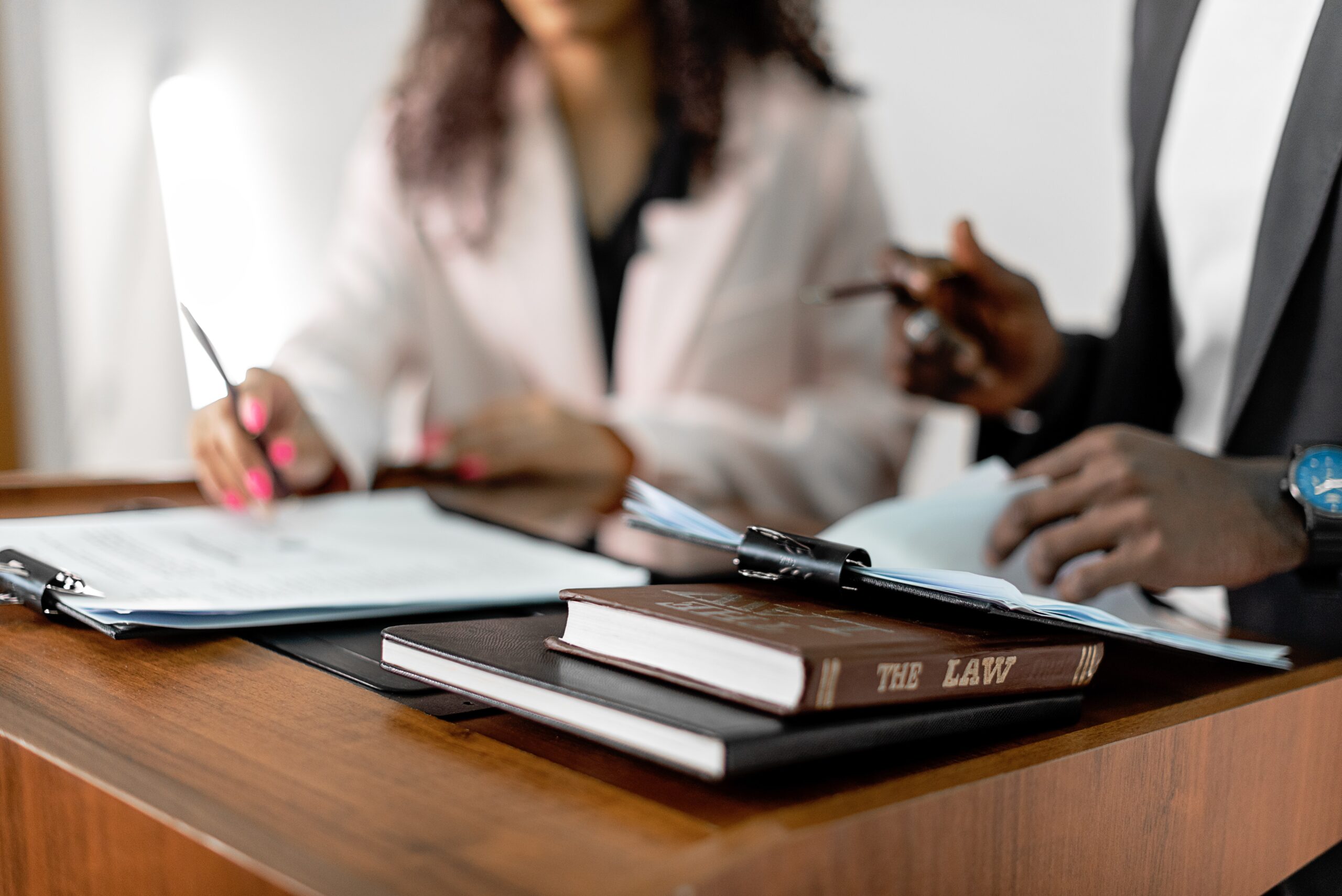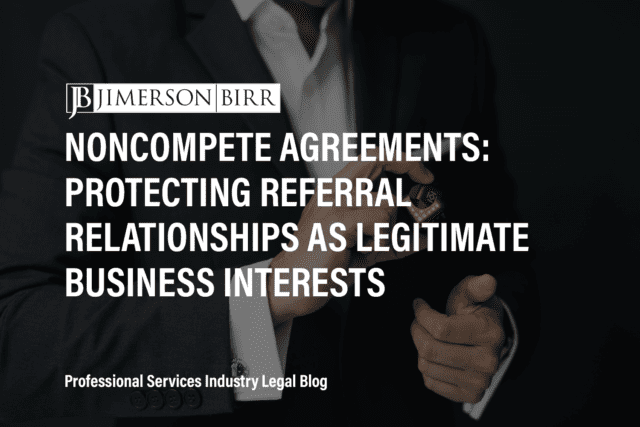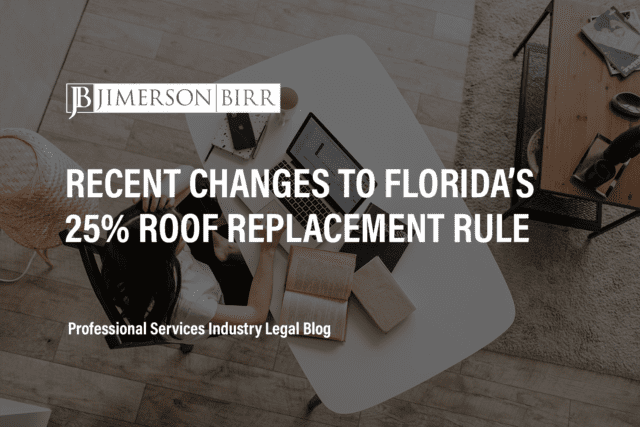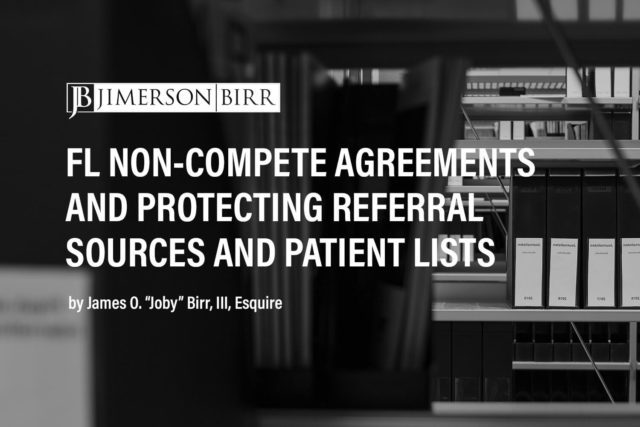What is patent infringement?
Patent infringement occurs when an individual or entity uses, sells, or manufactures a patented invention without the patent holder’s permission. In Florida, as in the rest of the United States, patents are governed by federal law. The United States Patent and Trademark Office (USPTO) grants patents and enforces patent rights under the Patent Act, 35 USC §§ 1-390.
To illustrate, consider a Florida company that develops and sells a unique device with a valid, enforceable patent. Suppose another company in Florida starts manufacturing and selling an identical or substantially similar product without obtaining a license or permission from the patent holder. In that case, the latter can pursue a patent infringement claim in federal court. The patent holder may seek damages, an injunction to stop further infringement, or both.
Need an intellectual property advocate? Schedule your consultation today with a top intellectual property protection attorney.
In Florida, which laws and regulations apply to patent infringement?
As patent law is federal in nature, the primary laws and regulations applicable to patent infringement in Florida are the Patent Act, 35 USC §§ 1-390, and the Code of Federal Regulations (CFR) Title 37. These federal statutes and regulations provide the framework for granting and enforcing patent rights.
Furthermore, the US Court of Appeals for the Federal Circuit hears appeals in patent cases from all district courts, including those in Florida. This court’s decisions establish binding precedents for patent infringement cases. As a result, Florida-based patent litigants must be aware of the federal statutes and regulations and the relevant case law affirmed by the Federal Circuit.
What are the strategic benefits of pursuing and defending against patent infringement?
Effective navigation of intellectual property law enables the following for businesses:
- Protecting business interests: Acting to enforce a patent can deter potential infringers and help maintain the patent owner’s market share. In addition, defending against infringement claims can protect a company’s right to continue using or selling its products or services.
- Licensing opportunities: Successful patent enforcement can create opportunities for licensing agreements with other companies, generating additional revenue for the patent holder. Similarly, defending against an infringement claim may lead to a negotiated licensing agreement, allowing the accused party to continue using the patented technology.
- Injunctions: A court-ordered injunction can prevent an infringer from continuing to use, sell, or manufacture the patented invention, thereby protecting the patent owner’s market share and potential profits. In a defense scenario, defeating an infringement claim helps the accused party avoid an injunction that could disrupt business operations.
- Monetary damages: Pursuing patent infringement claims can result in monetary damages awarded to the patent holder, compensating for lost profits, reasonable royalties, or other financial losses. On the other hand, successfully defending against an infringement claim can help the accused party avoid substantial financial liabilities.
- Strengthening patent portfolio: Enforcing patents and defending against infringement claims can reinforce the strength and value of a company’s patent portfolio, demonstrating to competitors and investors that the company is committed to protecting its intellectual property rights.
- Cross-licensing agreements: In some cases, parties involved in patent litigation may reach cross-licensing agreements, allowing each party to use the other’s patented technology.
When a set of facts is appropriate for legal intervention, there are many paths a claimant may take. We are value-based attorneys at Jimerson Birr, which means we look at each action with our clients from the point of view of costs and benefits while reducing liability. Then, based on our client’s objectives, we chart a path to seek appropriate remedies.
To determine whether your unique situation may necessitate litigation or another form of specialized advocacy, please contact our office to set up your initial consultation.
What patent rights issues commonly lead to patent infringement litigation?
The following issues commonly lead to litigation:
- Invalidity or unenforceability: A party accused of patent infringement may challenge the validity or enforceability of the patent. Common grounds for invalidity include lack of novelty, obviousness, or insufficient disclosure in the patent application.
- Infringement disputes: Disputes over whether a product or process infringes a patented invention often lead to litigation. These disputes typically involve questions about the interpretation of patent claims and comparisons between the patented invention and the accused product or process.
- The doctrine of equivalents: In some cases, an accused product or process does not literally infringe a patent claim but may still be considered an infringement under the doctrine of equivalents. This doctrine allows a patent holder to assert infringement when the accused product or process performs substantially the same function in substantially the same way to achieve substantially the same result as the patented invention.
- Indirect infringement: Indirect infringement, such as contributory or induced infringement, occurs when a party contributes to or encourages another party to infringe on a patent directly. For example, litigation can arise when patent holders assert indirect infringement claims against parties that supply components or encourage others to use a patented invention without permission.
- Patent marking and notice: Patent owners must provide notice of their patent rights, usually by marking their products with the patent number. Disputes can arise when an accused infringer claims that the patent holder failed to provide proper notice, potentially affecting the calculation of damages in an infringement case.
- Willful infringement: In cases where an accused infringer is alleged to have knowingly and intentionally infringed a patent, the patent holder may seek enhanced damages for willful infringement.
Please contact our office to set up your initial consultation to see what forms of intellectual property protection may be available for your unique situation.
What are the elements of a patent infringement claim?
To establish a patent infringement claim in Florida, a plaintiff must prove the following elements:
- The plaintiff owns a valid patent;
- The defendant infringed the patent; and
- The infringement damaged the plaintiff.
Valid patents are unexpired and issued by the United States Patent and Trademark Office (USPTO). To infringe a patent, the defendant must make, use, sell, offer to sell, or import the patented invention without the patent owner’s permission. Damages for patent infringement can include lost profits, reasonable royalties, and costs.
What steps should counsel take to pursue and defend against patent infringement effectively?
Counsel should consider the following to protect their clients:
- Thoroughly investigate the facts: Counsel should gather all relevant information about the patented invention, the alleged infringement, and the parties involved, which may include conducting a patent search, analyzing the patent’s claims and prosecution history, and examining the accused product or process.
- Evaluate the case’s merits: Counsel should assess the strengths and weaknesses of the infringement claim or defense by evaluating the validity and enforceability of the patent, the scope of the patent claims, and any potential defenses, such as non-infringement or prior use.
- Develop a litigation strategy: Based on the case’s merits, counsel should devise a comprehensive litigation plan, including identifying key issues, potential witnesses, and relevant evidence. In addition, counsel should consider alternative dispute resolution methods, such as negotiation or mediation, to resolve the dispute more quickly and cost-effectively potentially.
- Assert or challenge infringement: In pursuing a patent infringement claim, counsel should prepare and file a complaint in the appropriate court. Counsel should respond to the complaint and raise counterclaims or affirmative defenses, such as invalidity or inequitable conduct.
- Engage in discovery: Both parties should participate in obtaining relevant information from the opposing party, including documents, witness testimony, and expert opinions. This process is essential for building a solid case and preparing for trial.
Frequently Asked Questions
- How long does a patent infringement lawsuit typically take to resolve?
Patent infringement lawsuits can vary in duration but generally take one to three years to resolve. The timeline depends on factors such as the complexity of the case, the court’s schedule, and whether the parties engage in settlement negotiations or alternative dispute resolution.
- Can a party recover attorney’s fees in a patent infringement lawsuit?
A prevailing party may sometimes recover attorney’s fees in a patent infringement lawsuit. Under 35 USC § 285, a court may award reasonable attorney’s fees to the prevailing party in “exceptional cases,” including cases involving willful infringement, bad faith litigation conduct, or frivolous claims or defenses.
- What are the potential remedies for patent infringement?
Remedies for patent infringement may include monetary damages (such as lost profits or reasonable royalties), injunctive relief to prevent further infringement, and, in some cases, treble damages for willful infringement. The specific remedies available depend on the case’s circumstances and the infringement’s nature.
Have more questions about how intellectual property protection could impact your business?
Crucially, this overview of pursuing and defending against patent infringement does not begin to cover all the laws implicated by this issue or the factors that may compel the application of such laws. Every case is unique, and the laws can produce different outcomes depending on the individual circumstances.
Jimerson Birr attorneys guide our clients to help make informed decisions while ensuring their rights are respected and protected. Our lawyers are highly trained and experienced in the nuances of the law, so they can accurately interpret statutes and case law and holistically prepare individuals or companies for their legal endeavors. Through this intense personal investment and advocacy, our lawyers will help resolve the issue’s complicated legal problems efficiently and effectively.
Having a Jimerson Birr attorney on your side means securing a team of seasoned, multi-dimensional, cross-functional legal professionals. Whether it is a transaction, an operational issue, a regulatory challenge, or a contested legal predicament that may require court intervention, we remain tireless advocates at every step. Being a value-added law firm means putting the client at the forefront of everything we do. We use our experience to help our clients navigate even the most complex problems and come out the other side triumphant.
If you want to understand your case, the merits of your claim or defense, potential monetary awards, or the amount of exposure you face, you should speak with a qualified Jimerson Birr lawyer. Our experienced team of attorneys is here to help. Call Jimerson Birr at (904) 389-0050 or use the contact form to schedule a consultation.


We live by our 7 Superior Service Commitments
- Conferring Client-Defined Value
- Efficient and Cost-Effective
- Accessibility
- Delivering an Experience While Delivering Results
- Meaningful and Enduring Partnership
- Exceptional Communication Based Upon Listening
- Accountability to Goals











